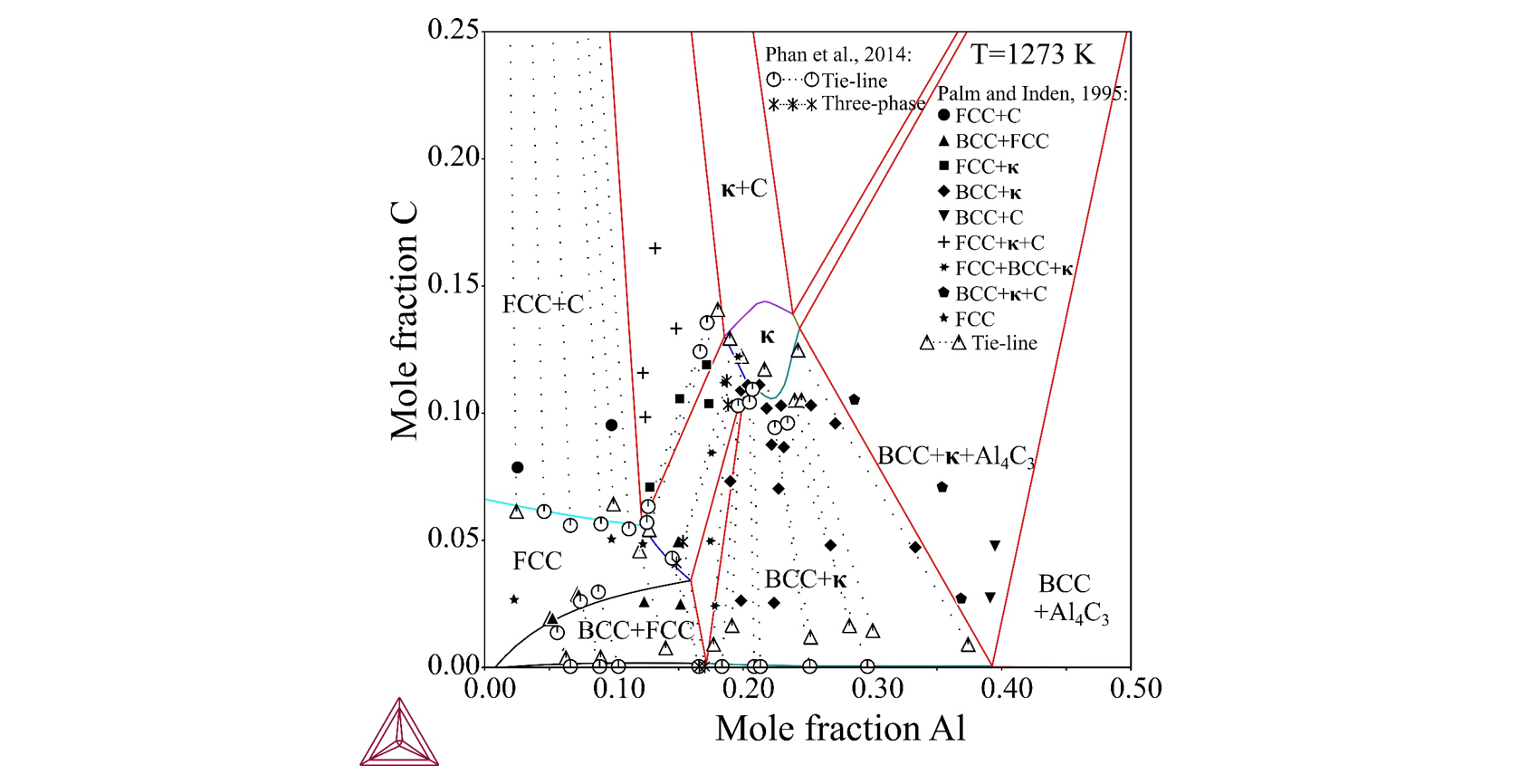Computational Thermodynamics (Calphad)
The main research focus is in the development of thermodynamic descriptions that can be used alone in databases or as a basis for additional modelling for e.g. phase transformations. In recent years the development of a new generation of CALPHAD databases starting with the reevaluation of the data for the elements has been given a lot of attention and effort. The idea is to increase the physical basis of the models at all levels starting from the unaries and binaries which will of course also affect the higher-order systems. The key working tool is the Thermo-Calc software which originates from the Department but is now licensed by Thermo-Calc Software AB.
Thermodynamics describe the equilibrium state of a system which is a necessary foundation for simulations of phase transformations and processes as all systems try to reach this state. The approach used to develop thermodynamic descriptions is referred to as CALPHAD which is an acronym for CALculation of PHase Diagrams but has come to denote a much wider research field. CALPHAD descriptions can be extrapolated also outside the equilibrium state and thus, when they are included in any calculation or simulation, provide information about values and gradients of the thermodynamic properties in space and time outside the range of stability of a phase.
The thermodynamic models used in the CALPHAD approach contain adjustable parameters. The parameters may be fitted to experimental as well as DFT data and are optimised to reproduce all data used as input. The model parameters are stored in databases and when descriptions are combined for unaries, binaries and ternaries they extrapolate well into higher order systems which is one of the strengths with the CALPHAD methodology. One can argue that these thermodynamic databases constitute the materials genome used as the basis for describing materials within ICME. The current main focus is the development of the next generation of thermodynamic models and databases and is performed in international cooperation within the SGTE framework.

